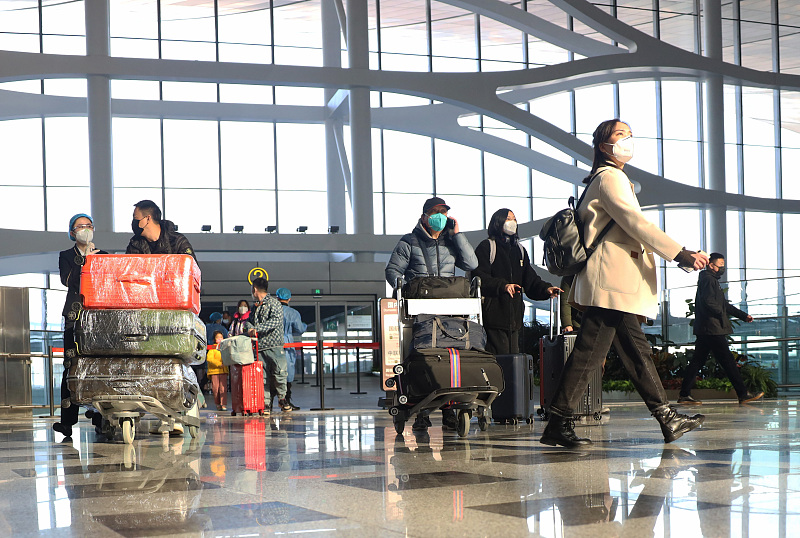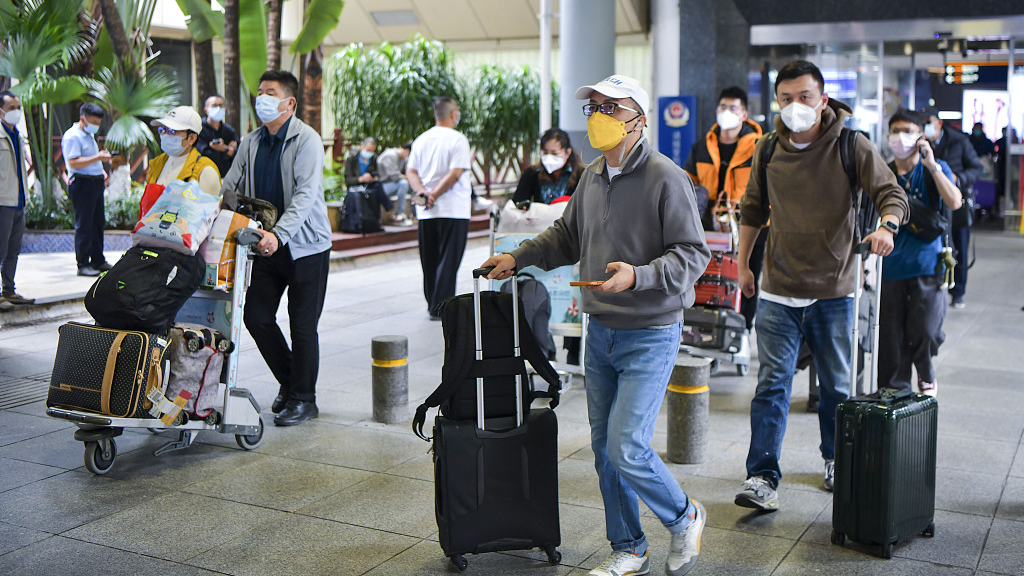
A picture of Beijing Daxing International Airport in Beijing, China, December 8, 2022. /CFP
A picture of Beijing Daxing International Airport in Beijing, China, December 8, 2022. /CFP
The U.S. government's requirement of negative COVID-19 tests for travelers from China "will likely have limited impact on transmission" and could "unintentionally fuel anti-Asian bias and xenophobia," U.S. physicians, scientists and public health experts said in a joint statement on Thursday.
They pointed out that the policy "will not provide the necessary data to fully assess the increasing number of cases" around the world.
The statement was made by the Infectious Diseases Society of America, which comprises more than 12,000 physicians, scientists and public health experts specializing in the field of infectious diseases, and the Society for Healthcare Epidemiology of America, representing over 2,000 physicians and other healthcare professionals across the world.
"To improve surveillance and obtain more useful data, the Administration should consider expanding broader testing strategies that are not defined by a narrow geographic scope. However, testing alone is unlikely to prevent transmission of the virus in the United States," it noted.
China has adjusted its COVID-19 response and eased overseas travel restrictions, and many countries are gearing up to welcome Chinese tourists. However, some Western countries, including the United States, have imposed curbs on travelers from China.
Many experts find the restrictions unnecessary and illogical, according to a report in The Washington Post, citing experts worldwide, on December 31, 2022.

Travelers at Meilan International Airport in Haikou, south China's Hainan Province, December 9, 2022. /CFP
Travelers at Meilan International Airport in Haikou, south China's Hainan Province, December 9, 2022. /CFP
Read more:
U.S. faces new COVID-19 surge, but imposes 'unscientific' China curb
China's new COVID-19 policy to help world economy: Philippine expert
"It doesn't make sense to me," Jeffrey Shaman, a public health researcher at Columbia University, was quoted as saying. "Travel restrictions seem intended to stop the virus at the border, which makes no sense given that the virus is already everywhere."
Kristian Andersen, an immunologist at Scripps Research, echoes Shaman, saying that it is "completely misguided" to fear that new variants emerge from China.
The systematic pre-departure or on-arrival testing of travelers from China for COVID-19 is "neither scientifically justified nor risk-based," the European branch of Airports Council International said recently.
"These unilateral actions are at odds with all the experience and evidence gained over the past three years," it said, adding that "these travel restrictions do not work."
Analysts say China's decision to ease rules on travel in and out of the country has offered investors hope that it could soften the impact of higher interest rates on global stock markets and unblock supply chains amid a dark outlook for 2023, according to a recent article in The Guardian.
China has always believed that COVID-19 response measures must be science-based and proportionate for all countries. They should not be used for political manipulation, China's Ministry of Foreign Affairs said on Wednesday.